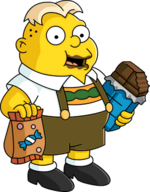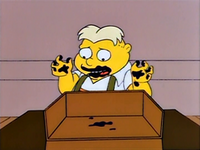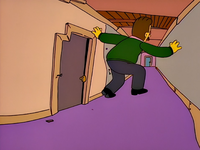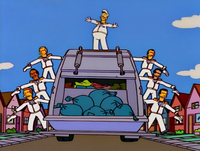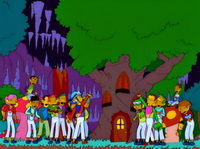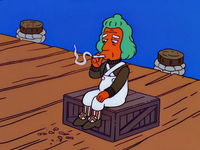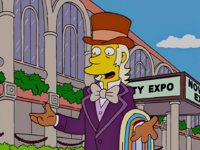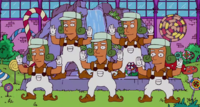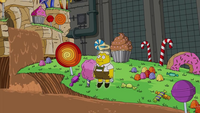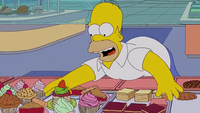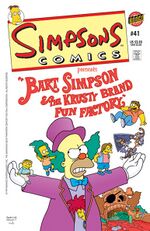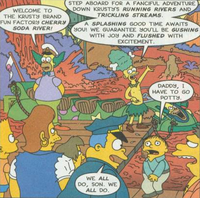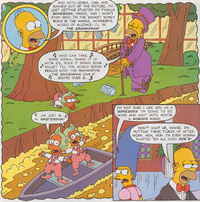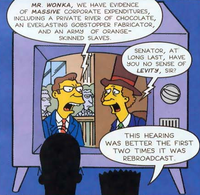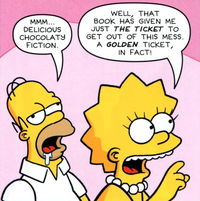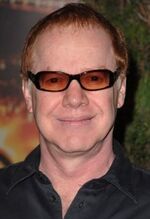
Difference between revisions of "Charlie and the Chocolate Factory"
| Line 62: | Line 62: | ||
{{TB|436}} | {{TB|436}} | ||
{{TB|"[[Eeny Teeny Maya, Moe]]"}} | {{TB|"[[Eeny Teeny Maya, Moe]]"}} | ||
| − | {{TB|When [[ | + | {{TB|When [[Moe]] is at [[Maya]]'s house, he sees a group of Oompa-Loompas on the television and quickly changes the channel.}} |
{{TBT|[[File:Walter Hotenhoffer.png|200px]]}} | {{TBT|[[File:Walter Hotenhoffer.png|200px]]}} | ||
{{TB|[[Season 22|22]]}} | {{TB|[[Season 22|22]]}} | ||
| Line 85: | Line 85: | ||
{{TB|652}} | {{TB|652}} | ||
{{TB|"[[I'm Dancing as Fat as I Can]]"}} | {{TB|"[[I'm Dancing as Fat as I Can]]"}} | ||
| − | {{TB|One of [[ | + | {{TB|One of [[Krusty]]'s writers suggests holding a golden ticket contest, referencing ''Charlie and the Chocolate Factory''.}} |
}} | }} | ||
Revision as of 18:18, March 8, 2022
Charlie and the Chocolate Factory is a children's novel written by Roald Dahl, originally published in 1964. It has been adapted into two feature films: a 1971 film titled Willy Wonka & the Chocolate Factory, and Charlie and the Chocolate Factory in 2005.
The story centers on a young boy named Charlie Bucket, whose bad luck turns around when he finds a golden ticket inside a chocolate bar, winning him a tour of Wonka Chocolate Factory. On the tour with four other children, Charlie meets the eccentric owner Willy Wonka and the Oompa-Loompas who operate the factory. The other four children are ejected from the factory in unusual ways as a result of their selfish desires, leaving Charlie as the winner and heir of the factory.
The book and its film adaptations have been referenced numerous times on The Simpsons.
Contents
References to Charlie and the Chocolate Factory in The Simpsons
Characters
|
Episodes
|
Comics
|
Common cast and crew
Crew
|
External links

